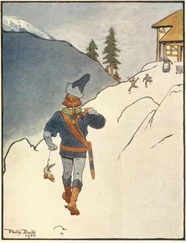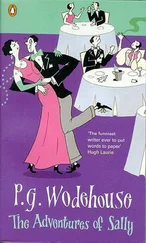Pelham Wodehouse - A Wodehouse Miscellany
Здесь есть возможность читать онлайн «Pelham Wodehouse - A Wodehouse Miscellany» весь текст электронной книги совершенно бесплатно (целиком полную версию без сокращений). В некоторых случаях можно слушать аудио, скачать через торрент в формате fb2 и присутствует краткое содержание. Жанр: Классическая проза, Юмористическая проза, на английском языке. Описание произведения, (предисловие) а так же отзывы посетителей доступны на портале библиотеки ЛибКат.
- Название:A Wodehouse Miscellany
- Автор:
- Жанр:
- Год:неизвестен
- ISBN:нет данных
- Рейтинг книги:3 / 5. Голосов: 1
-
Избранное:Добавить в избранное
- Отзывы:
-
Ваша оценка:
- 60
- 1
- 2
- 3
- 4
- 5
A Wodehouse Miscellany: краткое содержание, описание и аннотация
Предлагаем к чтению аннотацию, описание, краткое содержание или предисловие (зависит от того, что написал сам автор книги «A Wodehouse Miscellany»). Если вы не нашли необходимую информацию о книге — напишите в комментариях, мы постараемся отыскать её.
A Wodehouse Miscellany — читать онлайн бесплатно полную книгу (весь текст) целиком
Ниже представлен текст книги, разбитый по страницам. Система сохранения места последней прочитанной страницы, позволяет с удобством читать онлайн бесплатно книгу «A Wodehouse Miscellany», без необходимости каждый раз заново искать на чём Вы остановились. Поставьте закладку, и сможете в любой момент перейти на страницу, на которой закончили чтение.
Интервал:
Закладка:
There is also no purer pleasure than that of getting into a theatre on what the poet Milton used to call "the nod." I remember Brigham Young saying to me once with not unnatural chagrin, "You're a lucky man, Wodehouse. It doesn't cost you a nickel to go to a theatre. When I want to take in a show with the wife, I have to buy up the whole of the orchestra floor. And even then it's a tight fit."
My fellow critics and I escape this financial trouble, and it gives us a good deal of pleasure, when the male star is counting the house over the heroine's head (during their big love scene) to see him frown as he catches sight of us and hastily revise his original estimate.
THE AGONIES OF WRITING A MUSICAL COMEDY
Which Shows Why Librettists Pick at the Coverlet
The trouble about musical comedy, and the reason why a great many otherwise kindly and broadminded persons lie in wait round the corner with sudden scowls, their whole being intent on beating it with a brick the moment it shows its head, is that, from outside, it looks too easy.
You come into the crowded theatre and consider that each occupant of an orchestra chair is contributing three or four cents to the upkeep of a fellow who did nothing but dash off the stuff that keeps the numbers apart, and your blood boils. A glow of honest resentment fills you at the thought of anyone having such an absolute snap. You little know what the poor bird has suffered, and how inadequate a reward are his few yens per week for what he has been through. Musical comedy is not dashed off. It grows‒slowly and painfully, and each step in its growth either bleaches another tuft of the author's hair or removes it from the parent skull altogether.
The average musical comedy comes into being because somebody‒not the public, but a manager‒wants one. We will say that Mr. and Mrs. Whoosis, the eminent ballroom dancers, have decided that they require a different sphere for the exhibition of their talents. They do not demand a drama. They commission somebody to write them a musical comedy. Some poor, misguided creature is wheedled into signing a contract: and, from that moment, his troubles begin.
An inspiration gives him a pleasing and ingenious plot. Full of optimism, he starts to write it. By the time he has finished an excellent first act, he is informed that Mr. and Mrs. Whoosis propose to sing three solos and two duets in the first act and five in the second, and will he kindly build his script accordingly? This baffles the author a little. He is aware that both artistes, though extremely gifted northward as far as the ankle-bone, go all to pieces above that level, with the result that by the time you reach the zone where the brains and voice are located, there is nothing stirring whatever. And he had allowed for this in his original conception of the play, by making Mrs. Whoosis a deaf-mute and Mr. Whoosis a Trappist monk under the perpetual vow of silence. The unfolding of the plot he had left to the other characters, with a few ingenious gaps where the two stars could come on and dance.
He takes a stiff bracer, ties a vinegar-soaked handkerchief round his forehead, and sets to work to remodel his piece. He is a trifle discouraged, but he perseveres. With almost superhuman toil he contrives the only possible story which will fit the necessities of the case. He has wrapped up the script and is about to stroll round the corner to mail it, when he learns from the manager who is acting as intermediary between the parties concerned in the production that there is a slight hitch. Instead of having fifty thousand dollars deposited in the bank to back the play, it seems that the artistes merely said in their conversation that it would be awfully jolly if they did have that sum, or words to that effect.
By this time our author has got the thing into his system: or, rather, he has worked so hard that he feels he cannot abandon the venture now. He hunts for another manager who wants something musical, and at length finds one. The only proviso is that this manager does not need a piece built around two stars, but one suited to the needs of Jasper Cutup, the well-known comedian, whom he has under contract. The personality of Jasper is familiar to the author, so he works for a month or two and remoulds the play to fit him. With the script under his arm he staggers to the manager's office. The manager reads the script‒smiles‒chuckles‒thoroughly enjoys it. Then a cloud passes athwart his brow. "There's only one thing the matter with this piece," he says. "You seem to have written it to star a comedian." "But you said you wanted it for Jasper Cutup," gasps the author, supporting himself against the water-cooler. "Well, yes, that is so," replies the manager. "I remember I did want a piece for him then, but he's gone and signed up with K. and Lee. What I wish you would do is to take this script and twist it to be a vehicle for Pansy Glucose."
"Pansy Glucose?" moans the author. "The ingenue?" "Yes," says the manager. "It won't take long. Just turn your Milwaukee pickle manufacturer into a debutante, and the thing is done. Get to work as soon as you can. I want this rushed."
All this is but a portion of the musical comedy author's troubles. We will assume that he eventually finds a manager who really does put the piece into rehearsal. We will even assume that he encounters none of the trials to which I have alluded. We will even go further and assume that he is commissioned to write a musical comedy without any definite stellar personality in mind, and that when he has finished it the manager will do his share by providing a suitable cast. Is he in soft? No, dear reader, he is not in soft. You have forgotten the "Gurls." Critics are inclined to reproach, deride, blame and generally hammer the author of a musical comedy because his plot is not so consecutive and unbroken as the plot of a farce or a comedy. They do not realize the conditions under which he is working. If is one of the immutable laws governing musical plays that at certain intervals during the evening the audience demand to see the chorus. They may not be aware that they so demand, but it is nevertheless a fact that, unless the chorus come on at these fixed intervals, the audience's interest sags. The raciest farce-scenes cannot hold them, nor the most tender love passages. They want the gurls, the whole gurls, and nothing but the gurls.
Thus it comes about that the author, having at last finished his first act, is roused from his dream of content by a horrid fear. He turns to the script, and discovers that his panic was well grounded. He has carelessly allowed fully twenty pages to pass without once bringing on the chorus.
This is where he begins to clutch his forehead and to grow gray at the temples. He cannot possibly shift musical number four, which is a chorus number, into the spot now occupied by musical number three, which is a duet, because three is a "situation" number, rooted to its place by the exigencies of the story. The only thing to do is to pull the act to pieces and start afresh. And when you consider that this sort of thing happens not once but a dozen times between the start of a musical comedy book and its completion, can you wonder that this branch of writing is included among the dangerous trades and that librettists always end by picking at the coverlet?
Then there is the question of cast. The author builds his hero in such a manner that he requires an actor who can sing, dance, be funny, and carry a love interest. When the time comes to cast the piece, he finds that the only possible man in sight wants fifteen hundred a week and, anyway, is signed up for the next five years with the rival syndicate. He is then faced with the alternative of revising his play to suit either: a) Jones, who can sing and dance, but is not funny; b) Smith, who is funny, but cannot sing and dance; c) Brown, who is funny and can sing and dance, but who cannot carry a love-interest and, through working in revue, has developed a habit of wandering down to the footlights and chatting with the audience. Whichever actor is given the job, it means more rewriting.
Читать дальшеИнтервал:
Закладка:
Похожие книги на «A Wodehouse Miscellany»
Представляем Вашему вниманию похожие книги на «A Wodehouse Miscellany» списком для выбора. Мы отобрали схожую по названию и смыслу литературу в надежде предоставить читателям больше вариантов отыскать новые, интересные, ещё непрочитанные произведения.
Обсуждение, отзывы о книге «A Wodehouse Miscellany» и просто собственные мнения читателей. Оставьте ваши комментарии, напишите, что Вы думаете о произведении, его смысле или главных героях. Укажите что конкретно понравилось, а что нет, и почему Вы так считаете.


